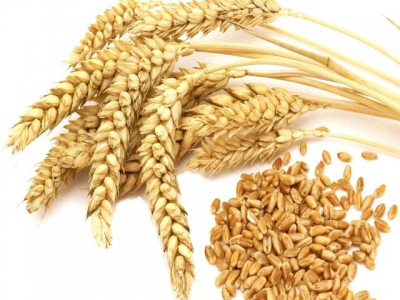Whole wheat in turkey diets promotes gut health

Results also indicated that dietary dilution with wheat did not reduce weight gain or feed efficiency
Feeding whole wheat to broilers is frequently practiced in many parts of the world, if only because it reduces feed cost by removing the energy consuming process of grinding. In addition, poultry require rather coarse feed texture to ensure gastrointestinal functionality and health.
A recent study investigates the effects of a moderate dilution (up to 22.5 percent) of turkey diets with whole wheat using 900 male turkeys that were allocated to five dietary treatments:
1. Basal diet
2. Basal diet diluted with low levels of ground and pelleted wheat
3. Basal diet diluted with low levels of whole wheat
4. Basal diet diluted with high levels of ground and pelleted wheat
5. Basal diet diluted with high levels of whole wheat
Results indicated that dietary dilution with wheat did not reduce weight gain or feed efficiency. In addition, compared to a basal diet, diets four and five significantly improved a considerable number of gastrointestinal health parameters, including reduced pathogenic bacteria counts, increased count of beneficial bacteria, increased concentrations of short-chain fatty acids, and reduced levels of ammonia and pH.
In conclusion, feeding whole wheat can be considered as an alternative feeding practice in turkeys that promotes gut health.
Có thể bạn quan tâm
 Digital imaging for animal monitoring progresses
Digital imaging for animal monitoring progresses Camera and vision techniques to identify and monitor individual animals in a group still need improvement.
 How to increase African egg production, consumption
How to increase African egg production, consumption Addressing issues at production and consumption levels is needed if the supply of eggs in Africa is to be increased.
 Maternal nutrition may boost bone strength in poultry progeny
Maternal nutrition may boost bone strength in poultry progeny O&T Farms is tracking the use of omega-3-based feed additives in breeding poultry feeds to understand what implications maternal nutrition may have